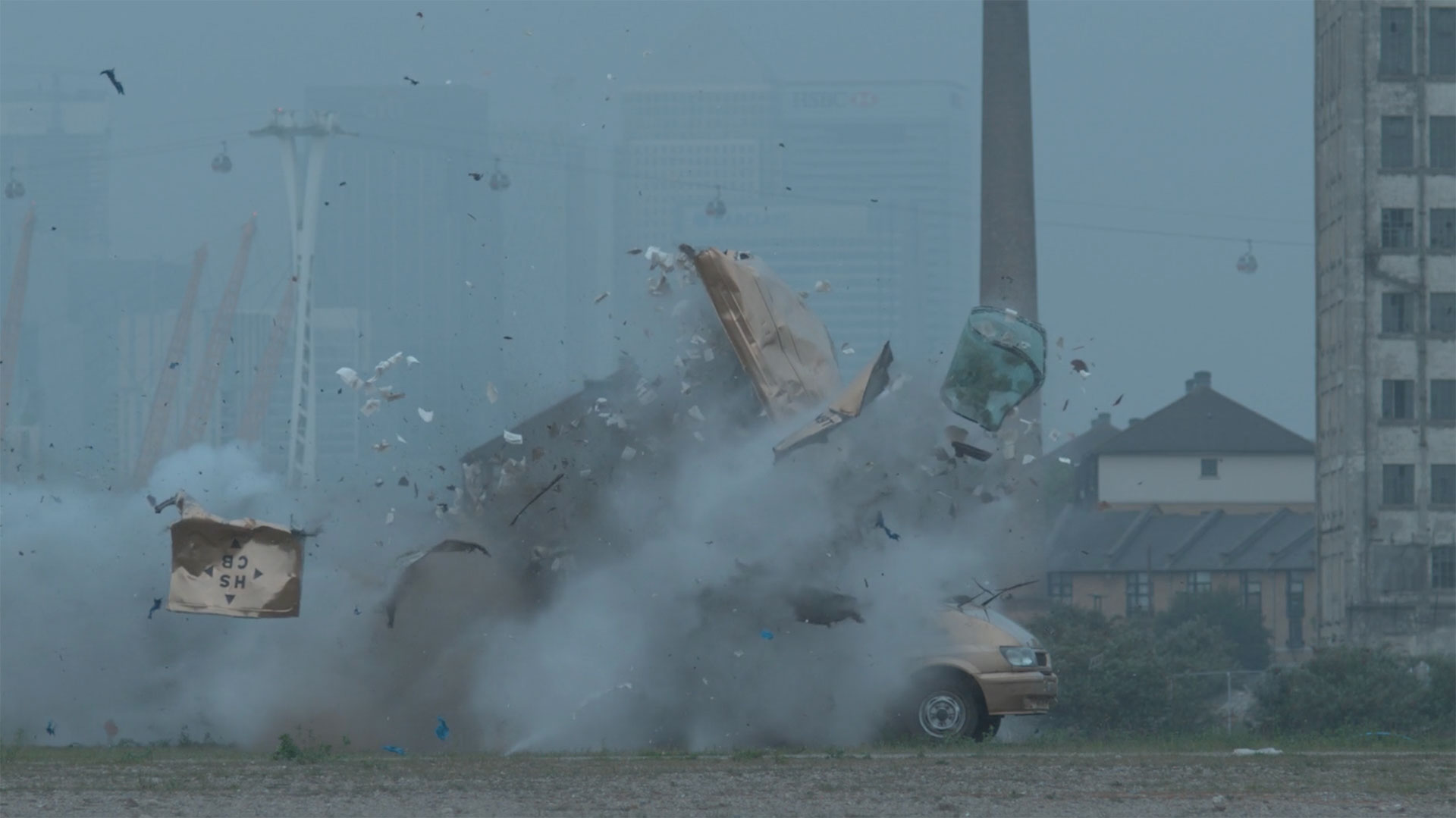In the original pitch of the film, Dan was intended to become The Debtonator, with the heist tropes swapped out for the ever-popular superhero film themes.
In a twist, the project became more about the power of the collective rather than a single person seeing their finances plummet to save everyone else from debt.
“This idea that I would risk everything of my own and my family’s to make a film about debt seemed to create terror in everyone I relayed it to,” says Dan. “I found that the destructive impulse laid bare to roll the dice, on the one hand, very exciting and, on another, I came to realise that to solve these kind of issues we needed to try and come together.
“One lone hero cannot solve the problems of a community.”
Ironically, one man who did have a large influence on the project was David Graeber. The renowned anthropologist’s book Debt: The First 5,000 Years became a well-thumbed bible for the project as Dan and Hilary threw themselves into the meticulous research behind the project.
Advertising helps fund Big Issue’s mission to end poverty
Graeber died on September 2 and that has left a bittersweet feeling among the pair as their ambitious debt cancelling project comes to its conclusion.
“We’re still reeling from the death of David Graeber and that movement that he seems to have left at its darkest point and how now there is even more need to come together and mobilise,” says Hilary. “You might think what you do is a drop in the ocean – and something like writing a book is – but collectively and collaboratively all of these actions do make a difference.”
That collective power is felt throughout The Bank Job with a loyal group of supporters in the UK and abroad buying up bank notes to provide the impetus behind the project.
While the Covid-19 has made connections difficult, the pair do maintain the online Hoe Street Central Bank of Ideas but acknowledge that they need the conversations around resisting debt to be started among communities.
That’s why all attentions are on getting the film in front of as many people as possible – to change how we think about debt and also how we think about community participation.
“We were for a time trying to make it replicable while realising that this kind of debt write-off isn’t a solution, it’s more like a lightning rod exposing an unjust system,” says Hilary. “I would love to see banks across the country becoming hubs where communities can become empowered to take action.
Advertising helps fund Big Issue’s mission to end poverty
“That’s something that has been stripped out of society from the miner’s welfare halls to community centres and libraries. We’re just losing that infrastructure where people can get together and learn and educate and debate.”
Dan adds: “I hope the film brings hope and action. It’s there to remind someone who finds themselves in debt that we are just normal people and we learned that money is created on a screen, that the Bank of England buys toxic bank debt every day.
“The only way we are going to get that change is by educating people and taking note of what’s going on in the first place.”
With spiralling debts becoming a fact of life for thousands of Brits during the recession, we can’t just stick our debts in a Transit van and press the button to make them evaporate.
But if The Bank Job does its job, how we think about money and our place as an individual in the complicated and opaque financial system could be changed forever.
The Bank Job is out now (Chelsea Green, £14.99)
Advertising helps fund Big Issue’s mission to end poverty





